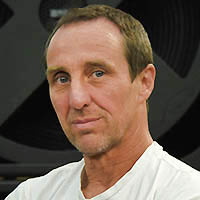Beauty in art revolves around the realization that there is no “correct” way for something to look, sound or feel. I believe this to be also true about the way audio is presented at a rock show. In fact, there’s a fairly wide range of possible sonic footprints which a sound engineer can offer the music to the audience while still maintaining an impressive auditory presentation.
An even bigger challenge is to find a “sound and mix” that optimally compliments the artist’s vision and management’s expectations while fueling audience immersion. So let’s take a look at some of the various factors in play.
First we have the way the artist wants to sound. Awkwardly, the humans that create and play the music rarely get to hear the way their own show actually sounds, so they must rely upon the opinions and reactions of other people. I smile when chatting with a band after the show and they ask me “how did the show sound?” when ultimately it is them who should be telling me whether my mixing skills and choices rocked or not.
The driving force behind the confidence that stage performers gain in their sound engineer’s skills tends to be based heavily on the opinions of band management, spouses and close friends. Concert reviewers, fan club message boards and real-time audience reactions are also very important aspects of the equation. To reach a level of harmonious success as an engineer, it’s important to also be aware of your own personal preferences, biases and opinions.
I’ve developed a bit of a strategy to balance out the sometimes conflicting pressures in order to end up with a mix that is a solid fit. Though I often do not have the luxury of following the complete process, I’ll share the steps here.
Defining Roles
Meeting the band for the first time is like any personal or business relationship: first impressions are crucial. If possible, I’ve already listened to some of their recordings and asked whoever hired me some basic questions. Early on I really want to determine their expectations. Am I helping a young band get their sound dialed in? Am I temporarily filling in for another engineer? What were the issues and assets of my predecessor? Did he/she leave, get fired, or is it just a logistical choice to use an engineer in this geographic region?
It’s pretty much a fact that every band wants to sound as good as they can – but – are they willing to spend some money to hire in high-quality gear to help achieve this? Or perhaps they want me to squeeze better sound out of whatever gear I happen to encounter?
Persuading artists and management to approve an adequate sound budget can be extremely frustrating. One of the methods I use in order to surround myself with the gear I desire is to say, “if you give me the tools I need to do my job, I will make every show sound great.” This is a very powerful statement because it establishes a self confidence in skill.
Further, it institutes a level of accountability and value in that the expenditure will achieve results. If they do provide the gear you ask for, then you must perform, and they get what they truly desire: a great sounding show. Additionally, the more money they spend on the gear you request, the higher their expectations in results will be.















